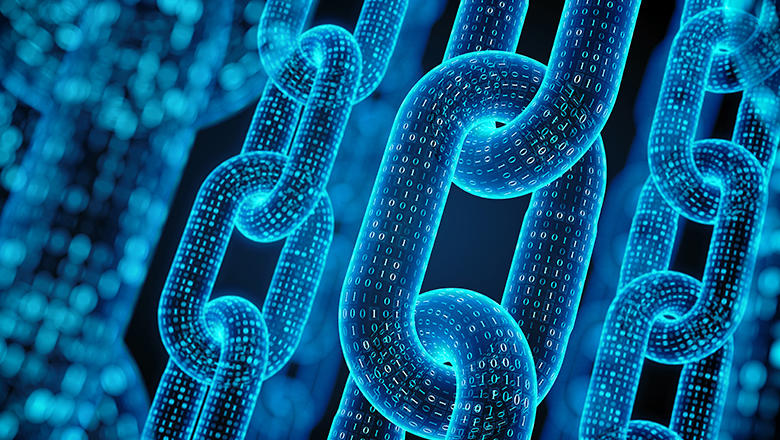Blockchain in nuclear disarmament and arms control verification
A new voices seminar with Lyndon Burford
02 November 2020
Findings reveal that blockchain technology behind the cryptocurrency Bitcoin could strengthen systems to verify the dismantlement of nuclear warheads.

The Centre for Science and Security Studies (CSSS), King’s College London has published a new policy report, arguing that blockchain technology, could help verify the dismantlement of nuclear warheads in a safe, secure and reliable way. This creates new opportunities to build trust among parties to the Nuclear Non-Proliferation Treaty by advancing cooperation on nuclear disarmament and arms control verification.
The Trust Machine: Blockchain in Nuclear Disarmament and Arms Control Verification is intended for analysts and policymakers who may not have a background in blockchain but are curious about how new technologies can help to reduce nuclear risks. Using jargon-free language, the report outlines the attributes of blockchain and compares them to the requirements of nuclear disarmament verification.
Leading the research, CSSS Research Associate Dr Lyndon Burford explains that blockchain’s unique characteristics correspond closely to the requirements for data management in disarmament processes.
Dr Burford says: ‘Countries around the world face the critical policy challenge of reducing nuclear risks, and cooperative disarmament and arms control measures can help with that task. But governments often lack sufficient trust in each other to cooperate on such measures, partly due to strategic and legal concerns not to reveal sensitive information.’
Blockchain allows authorised participants to collectively manage encrypted data without a central authority. It is practically impossible to secretly tamper with the data on a blockchain, so the technology creates a technical foundation for cooperation among non-trusting parties, leading to its nickname ‘the trust machine’.
Verifying the dismantlement of a nuclear warhead creates an enormous amount of sensitive data. Inspectors need to record the status and locations of warheads, the details of on-site inspections, and the status of various facilities. To maximise confidence in the process, this data needs to be stored in a highly secure, permanent manner that strictly controls access to the data but also allows for easy access by authorised participants. Blockchain provides precisely these attributes.
Among other things, blockchain could:
The Trust Machine recommends that participants in projects like the International Partnership for Nuclear Disarmament Verification and the ‘Quad Initiative’ (Norway/Sweden/the United Kingdom/the United States) incorporate blockchain into their research programmes.
This research was supported by the John D. and Catherine T. MacArthur Foundation.
The Trust Machine: Blockchain in Nuclear Disarmament and Arms Control Verification
A new voices seminar with Lyndon Burford